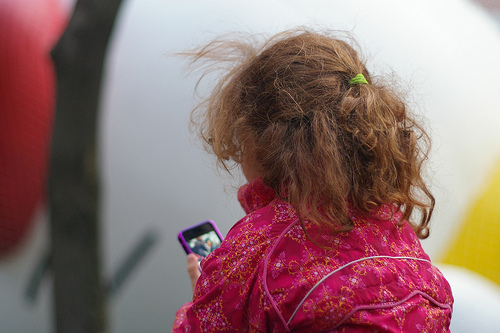Kids in California now have the legal right to erase their social media posts, a positive step toward giving them greater control over their online identities—or is it?
Signed into law by Governor Jerry Brown last month, the bill, SB 568, enables California minors to permanently delete postings and commits social media sites, like Twitter and Facebook, to help kids do that, beginning in January 2015. While some praise the first law of its kind to enable kids to delete regrettable content—think risqué photos or profane Tweets—others believe the law could cause more trouble than it aims to solve.
 Online content, after all, is not so easily erasable, according to Gary Price, founder and editor of Library Journal’s INFOdocket.
Online content, after all, is not so easily erasable, according to Gary Price, founder and editor of Library Journal’s INFOdocket.
“From my reading, the second someone reposts anything you share, you lose control of it,” he says. “Even if it’s up for a short amount of time it doesn’t mean someone hasn’t captured it.”
Nicknamed the “eraser” law, the legislation is considered the first of its kind in the United States.. As universities and employers begin to review social media sites before accepting students and hiring new graduates, this new option to clean up one’s online profile is something that adults may wish they could have used themselves.
But as Price notes, the law doesn’t protect re-posting by a third party—or when a pal uploads a shot of a friend goofing off at a party. Nor does the law address copies made of the post before it’s deleted. The Internet Archive, for example, strives to capture sites to build a comprehensive online library (although it says it does not archive pages that require a password to see.) Politwoops, a project of the Sunlight Foundation, captures tweets politicians have deleted. And screen shots and copied images are also easy to make in seconds. All can be placed on a second user’s desktop, and uploaded to a site, making them the original poster. Therefore, it would be impossible for the original person who posted the content to remove it.
“This open a slippery slope,” says Price. “It gives teenagers and those younger a false sense of security.”
KE Hones, a certified school librarian in San Francisco, CA, believes few students get any kind of structured digital literacy training in schools, which could help them better learn how to manage their online presence—without a digital eraser needed. Until this year, Hones was the school librarian at R.L. Elementary Stevenson School. But this fall she started working at three different high schools — Hilltop School, Pregnant Minors Program, County Civic Center Secondary and Downtown Continuation High School—where she splits her days. She loves working with the students, many of whom didn’t have access to a school librarian before she joined.
She says she recalls last year when the district set aside one day in the spring when everyone in school was supposed to talk about digital literacy. She believes these conversations took place in libraries — but wasn’t sure if the lessons migrated into the classrooms. And when librarians aren’t at schools, that kind of instruction can be missing.
“I think when librarians aren’t in the schools, the [students] are not getting that piece of tech literacy,” she says. “So that’s what leads to all different issues, to things they’re putting up and things that are inappropriate.”
To Price, that’s an issue as well, particularly as some teachers don’t have digital literacy training and may be just as flummoxed by social media as their students. While the law may be a good start, students still need to be educated about the online world, he says,and once they push the enter button, they should assume all control of that content may be lost for good — whether they have the option to delete it or not.
“Some of the logic behind this [law] isn’t the best way to go about it and may reinforce bad habits,” says Price. “It can end up backfiring.”
Photo by tracilawson


